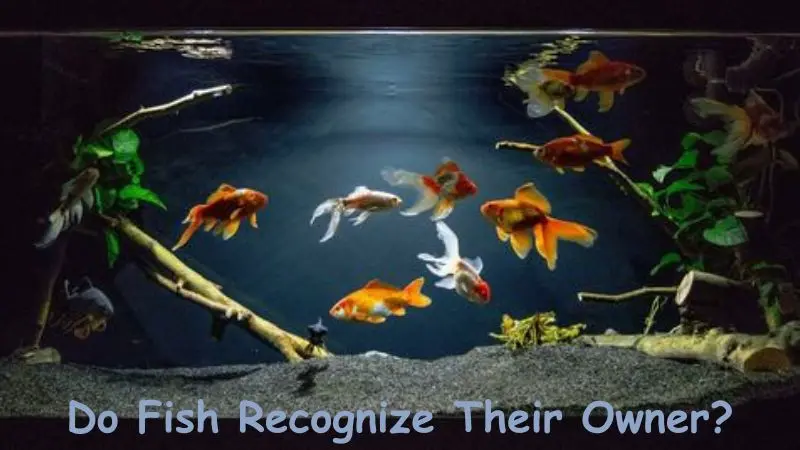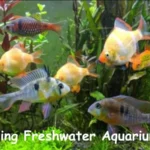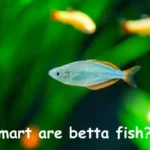fish farming
Do Fish Recognize Their Owner?
The question of whether fish recognize their owners is a fascinating one, prompting us to delve into the complex world of fish cognition and their interactions with humans. While the answer isn’t a simple yes or no, there is growing evidence suggesting that some fish species exhibit behaviors that could be interpreted as recognition of their human caretakers. This essay of fishtankmagic.com will explore the current scientific understanding of fish intelligence, the evidence for fish recognition, and the factors that influence this ability.
The Intricacies of Fish Intelligence
For centuries, fish were often perceived as simple creatures lacking complex thought processes. However, recent research has revealed a surprising level of cognitive ability in these aquatic inhabitants. Studies have demonstrated that fish exhibit a range of cognitive skills, including:
- Learning and Memory: Fish can learn complex tasks, such as navigating mazes, recognizing specific objects, and associating certain stimuli with rewards. They can also remember these learned behaviors over extended periods.
- Social Interactions: Fish engage in complex social behaviors, forming hierarchies, communicating through visual cues and sounds, and even displaying altruistic behavior.
- Problem-Solving: Fish have been observed using tools, solving puzzles, and adapting to changing environments, indicating a degree of problem-solving ability.
These findings challenge the traditional view of fish as mindless creatures and suggest that they possess a level of intelligence comparable to some mammals and birds.
Evidence for Fish Recognition
While the concept of fish recognizing their owners might seem far-fetched, several lines of evidence point towards this possibility:
- Individual Recognition: Studies have shown that fish can differentiate between individual members of their own species, recognizing them based on visual cues, scent, or even individual vocalizations. This ability to recognize individuals within their social group is a crucial element for successful social interactions and survival.
- Habituation and Conditioning: Fish can be conditioned to respond to specific stimuli, such as the sound of their owner’s footsteps or the sight of their feeding hand. This habituation suggests that they can associate certain cues with positive experiences, such as food or interaction, and recognize the individuals associated with these experiences.
- Behavioral Changes: Some fish owners report that their pets exhibit distinct behaviors when they are present, such as swimming closer to the tank, approaching the surface, or even displaying specific patterns of movement. While these observations need further scientific investigation, they suggest that fish might be able to recognize their owners based on visual cues or even the owner’s scent.
- Anecdotal Evidence: Numerous anecdotal accounts from fish owners describe their pets seemingly recognizing them and exhibiting distinct behaviors when they are present. While anecdotal evidence is not scientific proof, it highlights the potential for fish recognition and warrants further investigation.
Do Fish Recognize Their Owner? Factors Influencing Fish Recognition
The ability of fish to recognize their owners is likely influenced by several factors, including:
- Species: Different fish species exhibit varying levels of intelligence and social complexity. Some species, like cichlids and wrasses, are known for their complex social structures and cognitive abilities, making them more likely to recognize their owners.
- Individual Personality: Just like humans, fish have individual personalities and temperaments. Some fish are naturally more curious and outgoing, while others are more shy and reclusive. These personality traits can influence their interactions with their owners and their ability to recognize them.
- Environmental Enrichment: Fish kept in stimulating environments with ample space, hiding places, and opportunities for exploration are more likely to develop cognitive abilities and recognize their owners.
- Interaction Frequency: Frequent interaction with their owners, including feeding, cleaning the tank, and talking to them, can strengthen the bond between fish and their owners and facilitate recognition.
The Limits of Fish Recognition
While the evidence for fish recognition is growing, it’s important to acknowledge the limitations of current research. It’s crucial to distinguish between simple habituation and true recognition. Habituation involves associating a specific stimulus with a neutral response, while recognition implies a more complex understanding of the individual associated with the stimulus.
Furthermore, the methods used to study fish recognition are often limited by the difficulty of observing and interpreting their behavior. While some studies have shown promising results, further research is needed to confirm and refine our understanding of fish cognition and their ability to recognize their owners.
Implications for Fish Welfare
Understanding the potential for fish recognition has significant implications for fish welfare. If fish can recognize their owners, it suggests that they can experience stress and anxiety when separated from them or when their environment changes. This knowledge emphasizes the importance of providing fish with a stable and enriching environment, minimizing stress factors, and fostering positive interactions with their human caretakers.
Conclusion
The question of whether fish recognize their owners is a complex one that requires further scientific investigation. While the evidence for fish recognition is growing, it’s crucial to approach this topic with a balanced perspective, acknowledging both the potential for fish cognition and the limitations of current research. Regardless of the level of recognition, it’s clear that fish are intelligent creatures capable of learning, forming social bonds, and experiencing emotions. This understanding should guide our interactions with these fascinating aquatic beings, promoting their welfare and fostering a deeper appreciation for their complex world.












